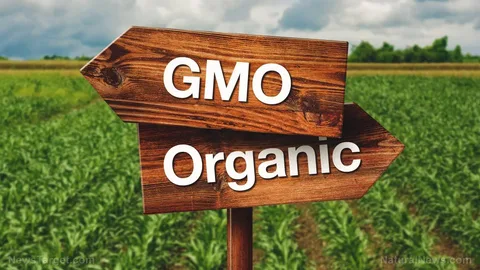Organic Business Regulations In today’s world, many people are becoming more conscious about what they eat and how products are made. This awareness has led to a rise in organic businesses, which focus on selling products made without synthetic chemicals, pesticides, or genetically modified organisms (GMOs). But as the popularity of organic products increases, so do the rules and regulations that govern them. This blog post will explore organic business regulations, their importance, and what they mean for consumers and producers alike.
We will cover:
Table of Contents
ToggleWhat organic business regulations are
- The importance of these regulations
- The different types of regulations
- How these regulations impact businesses and consumers
- Resources for further information
What Are Organic Business Regulations
Organic business regulations are rules that dictate how organic products must be grown, processed, and marketed. These regulations ensure that products labeled as “organic” meet specific standards set by governing bodies. In the United States, the main authority for organic certification is the United States Department of Agriculture (USDA). The USDA has established strict guidelines that organic farmers and producers must follow to earn their certification.
Why Are These Regulations Important
Organic business regulations are crucial for several reasons:
- Consumer Protection: These regulations protect consumers by ensuring that organic products are genuinely organic. When people see the USDA organic seal, they can trust that the product has met high standards.
- Environmental Health: Organic farming practices are designed to be more sustainable and less harmful to the environment. By regulating these practices, we can promote healthier ecosystems.
- Fair Competition: Regulations help maintain a level playing field for all businesses in the organic market. Without these rules, some businesses might cut corners, leading to unfair competition and a lack of trust in organic labeling.
- Support for Farmers: These regulations provide a framework for farmers to follow, which can help them succeed in the organic market. They also often include guidelines for transitioning to organic practices, making it easier for farmers to switch to organic farming.
Types of Organic Business Regulations
Organic business regulations can vary from country to country, but they generally fall into a few key categories:
1. Production Standards
Production standards dictate how organic crops and livestock must be grown and raised. These standards include:
- No Synthetic Chemicals: Farmers must avoid synthetic fertilizers, pesticides, and herbicides.
- Soil Health: Organic farming practices must maintain or improve soil health through practices like crop rotation and cover cropping.
- Animal Welfare: Organic livestock must be raised in conditions that allow them to engage in natural behaviors.
2. Processing Standards
Processing standards ensure that organic products maintain their integrity throughout the manufacturing process. This includes:
- Avoiding Contamination: Organic products must be kept separate from non-organic products to prevent contamination.
- Permitted Ingredients: Only specific ingredients are allowed in organic processed foods, and additives must be organic or natural.
3. Labeling Requirements
Labeling regulations dictate how products can be marketed as organic. Some key points include:
- USDA Organic Seal: Only products that meet USDA standards can display the USDA organic seal.
- Clear Labeling: Labels must accurately reflect the organic content of the product. For example, products labeled as “100% organic” must contain only organic ingredients.
4. Certification Processes
To sell products as organic, businesses must go through a certification process. This includes:
- Inspection: Farms and facilities must be inspected by an accredited certifying agent to ensure they meet organic standards.
- Documentation: Businesses must maintain detailed records of their farming and processing practices to demonstrate compliance with organic regulations.
How Do Organic Regulations Impact Businesses
Media error: Format(s) not supported or source(s) not found
Download File: https://orgnicbusiness.com/wp-content/uploads/2024/09/How-Do-Organic-Regulations-Impact-Businesses.mp4?_=1Understanding organic business regulations is vital for producers looking to enter the organic market. Here’s how these regulations impact them:
1. Market Access
Certification opens doors to new markets. Organic products often command higher prices, so getting certified can be financially beneficial for farmers and businesses.
2. Investment in Practices
Businesses may need to invest in organic farming practices, which can involve changing how they grow crops or raise livestock. While this can be a challenge, it can also lead to better long-term sustainability.
3. Increased Scrutiny
Being certified means that businesses will face regular inspections and audits. This level of scrutiny can be daunting but ensures that they remain compliant with regulations.
4. Consumer Trust
Having organic certification helps build trust with consumers. When customers see that a business is certified organic, they are more likely to purchase products from them.
How Do Organic Regulations Impact Consumers
For consumers, organic business regulations offer significant benefits:
1. Safety and Assurance
Consumers can feel confident that the organic products they purchase are safe and meet established standards. This assurance is essential for people who are health-conscious or concerned about food quality.
2. Transparency
Regulations promote transparency in the organic market. Consumers can access information about how their food is grown and processed, allowing them to make informed choices.
3. Environmental Responsibility
By choosing organic products, consumers support environmentally friendly practices. Knowing that their purchases align with sustainable practices can enhance their overall satisfaction.
The Future of Organic Business Regulations
As the organic market continues to grow, regulations will likely evolve. Some trends to watch include:
- Increased Global Standards: As more countries embrace organic practices, there may be a push for more unified global standards.
- Technological Advances: New technologies in farming and processing could influence regulations and standards, making organic practices more efficient and sustainable.
- Consumer Advocacy: With increasing consumer awareness, advocacy for stricter regulations may rise to ensure transparency and integrity in the organic market.
Conclusion
Organic business regulations play a vital role in ensuring that organic products are safe, sustainable, and reliable. By protecting consumers and supporting farmers, these regulations contribute to a healthier planet and a more transparent market.
If you want to learn more about organic certification and regulations, consider visiting the USDA’s National Organic Program for comprehensive resources and guidance.
Organic products are more than just a trend; they represent a commitment to quality, health, and sustainability. Embrace the organic movement, and support businesses that adhere to these important regulations!
For further reading on organic agriculture and regulations, check out the Organic Trade Association for valuable insights and resources.





